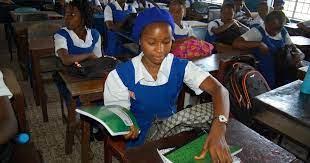
At the United Nations Human Rights Council in Geneva this week, more than 70 countries from every region of the world expressed support for “efforts to strengthen the right to education, including the explicit right to full free secondary and at least one year of free pre-primary education.”
Luxembourg and the Dominican Republic led the statement of support.
Brazil went even further, inviting “all states to consider a new international legal instrument to formally recognize the right of every child to at least one year of preschool and to free inclusive public and quality secondary education.”
Why was such a statement even needed? For starters, the UN Convention on the Rights of the Child – the most widely ratified international human rights treaty – makes no explicit reference to early childhood education, and although it requires primary education to be free and compulsory, it does not explicitly obligate governments to provide free pre-primary education or secondary education to all children. But for children to achieve their full potential and thrive in today’s world, free primary education simply isn’t enough.
At an event the day before, Sierra Leone’s education minister, David Moinina Sengeh, explained in a video address that an initiative launched in Sierra Leone in 2018 removing tuition and examination fees boosted school enrollment by over a million children. This year, Sierra Leone made these changes law, guaranteeing 13 years of free education, from pre-primary through secondary.
Get updates on human rights issues from around the globe. Join our movement today.
Have it sent to your inbox.
It’s not just governments calling for strengthened international law around free education: activists and human rights experts, Nobel Prize winners, and, in an open letter from the global civic movement Avaaz, over a half-million people around the world are making a similar call.
Human Rights Watch’s analysis suggests the most effective way to strengthen international law on the right to education would be through a fourth optional protocol to the Convention on the Rights of the Child.
Lucia Fry, director of research and policy at the Malala Fund, asked rhetorically whether extending the international legal framework will fix everything.
“No,” she answered, but listed three things it would do:
It will be another strut in the scaffolding holding up the global norm that all children should have an education. It will provide “wind in the back” for girls “struggling to open the doors of learning to all.” And it will be an invaluable tool for children, parents, activists, and policymakers to fight for the right to free education for all.
- 1160 reads










Add new comment